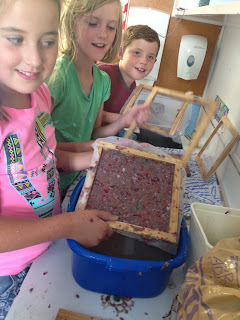Information
from the Ministry of Education that may be of interest to Parents.
Views
of Knowledge
New ideas about knowledge have largely emerged in the world outside education,
driven in large part by enormous economic, social, and technological changes.
These “knowledge age” ideas – although complex – are extremely important for
thinking about the design of a future-oriented curriculum.
|
In The Past
|
Now
|
|
Knowledge
was conceived of as something developed and known by experts, which could be
passed on from teacher to student or manager to worker.
|
Knowledge
is dynamic and key to the process of creating new knowledge. It comes into
being “just in time” to solve specific problems as they emerge.
|
|
A
school’s job was to transmit knowledge, and the students’ job was to absorb
it in preparation for their lives after school.
Curriculum
development involved determining which knowledge students would need for
their future roles and organising this knowledge into logical sequences of
curriculum units that could be taught using step-by-step methods.
|
It
is no longer possible to accurately predict exactly what knowledge people
will need to draw on as they move through life. To support their ability to
develop new knowledge, learners need opportunities to build their sense of
identity – to become self-reliant, critical, and creative thinkers; to be
team players; to learn to use initiative; and to engage in ongoing learning
throughout their lives.
|
|
Education
structures assumed a certain degree of stability and predictability in the
kinds of jobs and social roles that people could move into once they left
school.
|
The
jobs and social roles that people move into once they leave school are
constantly evolving as a consequence of social, economic, and technological
developments. In an increasingly globalised, interconnected, and
interdependent world, people who are able to work with knowledge are seen as
a key resource.
|
What we know about learning
A future-oriented education system must be learning centred. Research clearly
shows that people do not learn well as spectators – good learning requires
active engagement.
· Learning is much more than acquiring new knowledge and
concepts. It involves thinking, but learners need knowledge and experiences to
think with.
· Learners need to be actively engaged in ways that
allow them to process, interpret, and adapt an experience.
· Learners have to want to learn. They have to see a
purpose to learning and how it will allow them to contribute to something
beyond themselves.
· Learners have to feel in charge of their own learning
and to get a sense of flow and progress, with the right amount of challenge and
feedback along the way.
· Learners need to develop in-depth knowledge in some
areas to help them keep learning.
· Learners need to be encouraged to search, not for the
right answer (focusing on surface features) but for the right approach to
solving a problem (deep structures).
· Learning involves interaction – trying out and testing
ideas with others.
· Learning usually needs structure. For example, adults
play an important role in young children’s development by structuring their
experiences and directing their attention to certain aspects of those
experiences.
· Learning needs to take place in a wide variety of
settings so that learners can transfer their learning and use it in new
contexts.
·
Intelligence is
not fixed but is expandable through learning experiences. Expanding people’s
intellectual capacity – and ability to keep learning – should be the key
function of a future-oriented education system.






